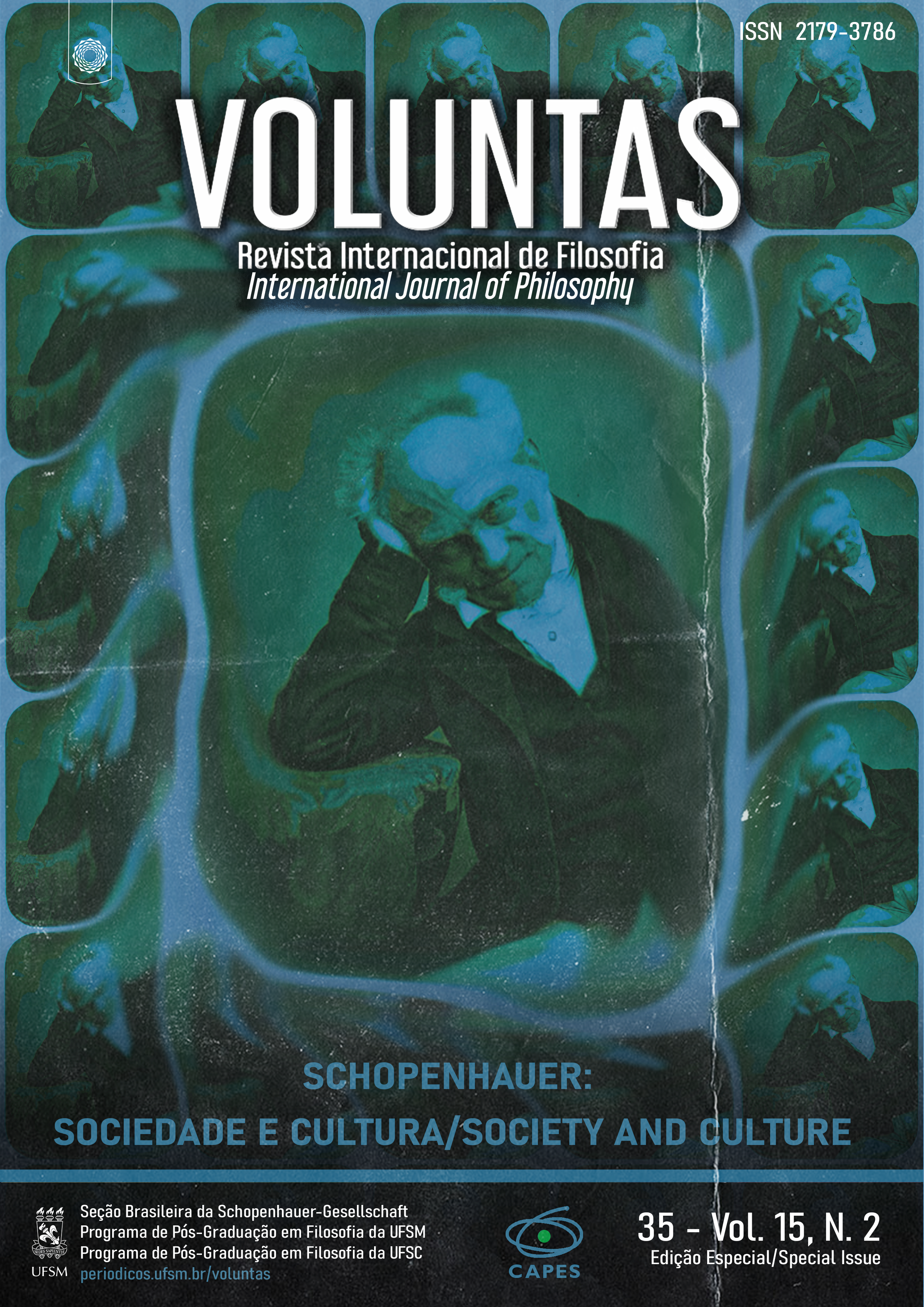The fact of moral consciousness in Arthur Schopenhauer's 1820 lecture on the Metaphysics of Morals
DOI:
https://doi.org/10.5902/2179378688215Keywords:
Metaphysics of customs, Morals, Ethics, Moral conscienceAbstract
Based on the text of the translation of the lecture on the metaphysics of customs released in June 2024 by the publisher of Unesp, I present an examination of the concepts of “Gewissensangst” and “Reue” as counterpoints to the concept of moral law. It is intended to demonstrate that Schopenhauer, when affirming the existence of a moral meaning for human actions, indicates the feeling of remorse as the basis for such meaning and legitimacy of morality, vehemently denying the possibility of a doctrine of duty based on the idea of a moral law, thus opposing Kantian ethics. This opposition permeates the entire text of the metaphysics of morals, appearing as a topic in the 1820 lecture.
Downloads
References
SCHOPENHAUER, A. Arthur Schopenhauers sämtliche Werke.Hrsg. von Paul Deussen. Munique: R. Piper, 1911-1942.
SCHOPENHAUER, A. Arthur Schopenhauers handschriftlicher Nachlaß. Philosophische Vorlesungen -Metaphysik der Sitten. Munique: R. Piper, 1911-1942. p. 367-584.
SCHOPENHAUER, A.O mundo como vontade e como representação. Tomo I. Tradução, apresentação, notas e índices de Jair Barboza. São Paulo: Editora UNESP, 2005.
SCHOPENAHUER, A. Sobre o fundamento da Moral. Tradução: Maria Lucia Cacciola. Editora Martins Fontes, 1995.
SCHOPENHAUER, A. Metafísica dos Costumes, Tradução: Eli Vagner Francisco Rodrigues. São Paulo: Editora da Unesp, 2024.
Published
How to Cite
Issue
Section
License
Copyright (c) 2024 Eli Vagner Francisco Rodrigues

This work is licensed under a Creative Commons Attribution-NonCommercial-ShareAlike 4.0 International License.
The submission of original manuscripts to this journal implies the transference, by the authors, of the copyrights for printed and digital publication. The copyrights of a published manuscript belong ultimately to the author, and only the copyright for its first publication is reserved to the journal. Authors may only use the same results in other publications explicitly indicating this journal as the medium of the original publication.
Licence
Attribution-NonCommercial-ShareAlike 4.0 International (CC BY-NC-SA 4.0) - This license lets others remix, tweak, and build upon your work non-commercially, as long as they credit you and license their new creations under the identical terms.






